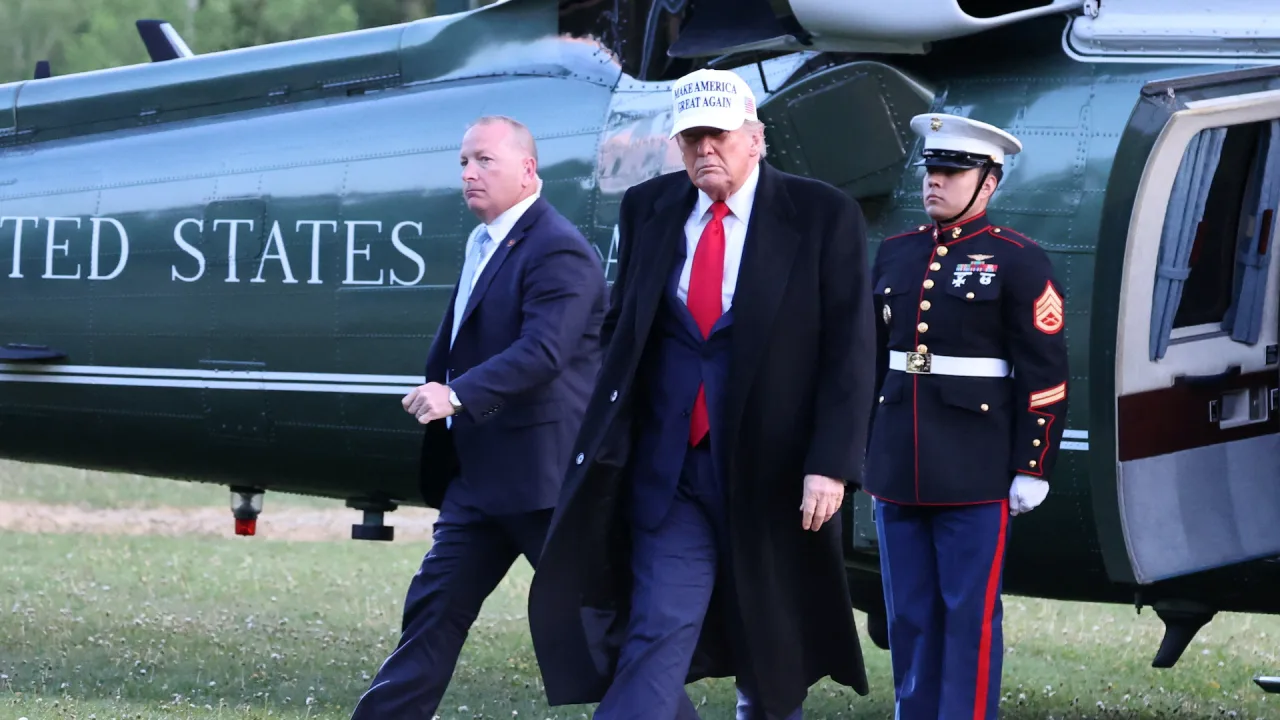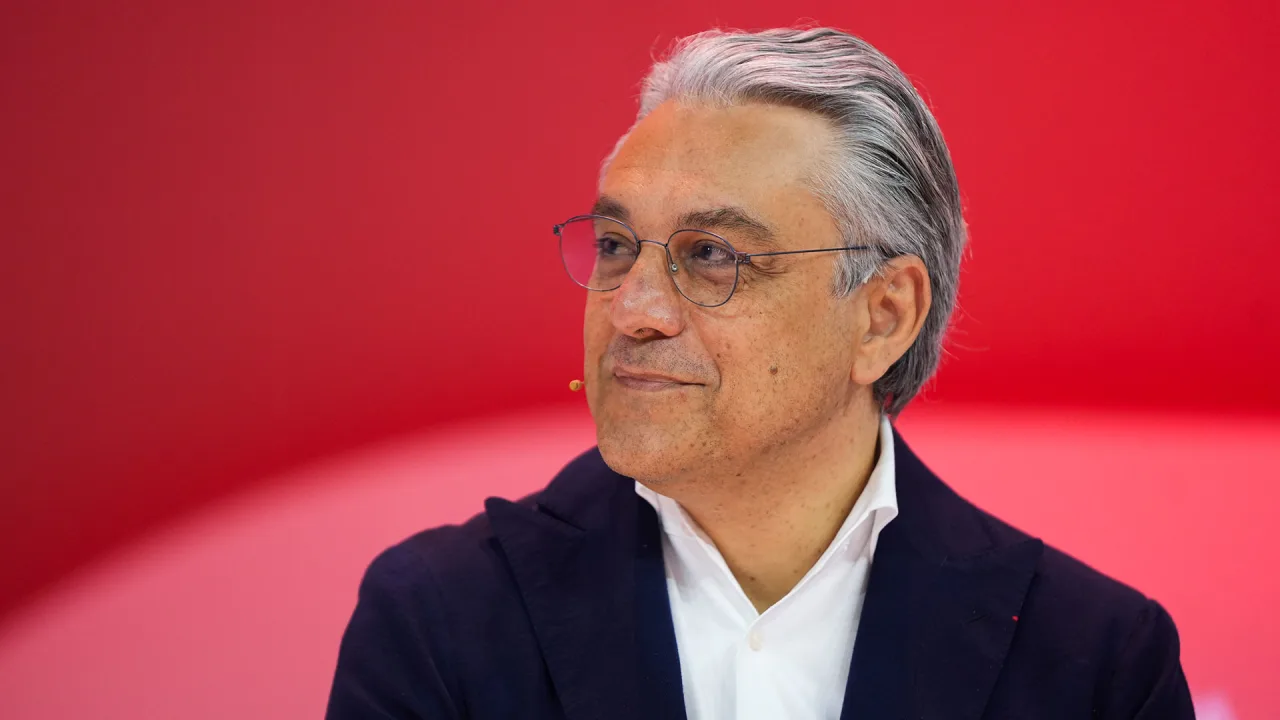G7 leaders push for unity as Trump criticizes Russia’s removal
Leaders from the Group of Seven nations began annual talks on Monday with wars escalating in Ukraine and the Middle East, as U.S. President Donald Trump said removing Russia from the former Group of Eight was a mistake. The G7 leaders from Britain, Canada, France, Germany, Italy, Japan, and the U.S., along with the European Union, are convening in the resort area of Kananaskis in the Canadian Rockies until Tuesday. With an escalating Israel-Iran conflict, the summit in Canada is seen as a vital moment to try to restore a semblance of unity among democratic powerhouses. In an early sign that they may struggle to reach agreement on key issues, a U.S. official said Trump would not sign a draft statement calling for de-escalation of the Israel-Iran conflict. Speaking alongside Canadian Prime Minister Mark Carney, Trump said kicking Russia out of the former Group of Eight was a mistake. Members removed Russia in 2014 after it annexed Crimea. “This was a big mistake,” Trump said. “You wouldn’t have that war. You know you have your enemy at the table, I don’t even consider, he wasn’t really an enemy at that time.” Canada has abandoned any effort to adopt a comprehensive communique to avert a repeat of the 2018 summit in Quebec, when Trump instructed the U.S. delegation to withdraw its approval of the final communique after leaving. Leaders have prepared several other draft documents seen by Reuters, including on migration, artificial intelligence, and critical mineral supply chains. None of them have been approved by the United States, however, according to sources briefed on the documents. Europeans are on the same page on most issues, a European diplomat said. But without Trump, it is unclear if there will be any declarations, the diplomat said. The first five months of Trump’s second term upended foreign policy on Ukraine, raised anxiety over his closer ties to Russia, and resulted in tariffs on U.S. allies. Talks on Monday will centre around the economy, advancing trade deals, and China. Efforts to reach an agreement to lower the G7 price cap on Russian oil, even if Trump decided to opt out, were complicated by a temporary surge in oil prices since Israel launched strikes on Iran on June 12, two diplomatic sources said. Oil prices fell on Monday on reports Iran was seeking a truce. The escalation between the two regional foes is high on the agenda, with diplomatic sources saying they hope to urge restraint and a return to diplomacy and would encourage Trump to sign a declaration. “I do think there’s a consensus for de-escalation. Obviously, what we need to do today is to bring that together and to be clear about how it is to be brought about,” British Prime Minister Keir Starmer told reporters. Russian elephant in the room Further highlighting the unease among some of Washington’s allies, Trump spoke on Saturday with Russian President Vladimir Putin and suggested the Russian leader could play a mediation role between Israel and Iran. French President Emmanuel Macron dismissed the idea, arguing that Moscow could not be a negotiator because it had started an illegal war against Ukraine. A European diplomat said Trump’s suggestion showed that Russia was very much on U.S. minds. “In the eyes of the U.S., there’s no condemnation for Ukraine; no peace without Russia; and now even credit for its mediation role with Iran. For Europeans, this will be a really tough G7,” the diplomat said. Ukraine’s President Volodymyr Zelenskyy and NATO Secretary General Mark Rutte will attend the summit on Tuesday. European officials said they hoped to use the meeting and next week’s NATO summit to convince Trump to toughen his stance on Putin. “The G7 should have the objective for us to converge again, for Ukraine to get a ceasefire to lead to a robust and lasting peace, and in my view it’s a question of seeing whether President Trump is ready to put forward much tougher sanctions on Russia,” Macron said. —By David Ljunggren, John Irish and Jarrett Renshaw, Reuters Additional reporting by Suzanne Plunket.

Leaders from the Group of Seven nations began annual talks on Monday with wars escalating in Ukraine and the Middle East, as U.S. President Donald Trump said removing Russia from the former Group of Eight was a mistake.
The G7 leaders from Britain, Canada, France, Germany, Italy, Japan, and the U.S., along with the European Union, are convening in the resort area of Kananaskis in the Canadian Rockies until Tuesday.
With an escalating Israel-Iran conflict, the summit in Canada is seen as a vital moment to try to restore a semblance of unity among democratic powerhouses.
In an early sign that they may struggle to reach agreement on key issues, a U.S. official said Trump would not sign a draft statement calling for de-escalation of the Israel-Iran conflict.
Speaking alongside Canadian Prime Minister Mark Carney, Trump said kicking Russia out of the former Group of Eight was a mistake. Members removed Russia in 2014 after it annexed Crimea.
“This was a big mistake,” Trump said. “You wouldn’t have that war. You know you have your enemy at the table, I don’t even consider, he wasn’t really an enemy at that time.”
Canada has abandoned any effort to adopt a comprehensive communique to avert a repeat of the 2018 summit in Quebec, when Trump instructed the U.S. delegation to withdraw its approval of the final communique after leaving.
Leaders have prepared several other draft documents seen by Reuters, including on migration, artificial intelligence, and critical mineral supply chains. None of them have been approved by the United States, however, according to sources briefed on the documents.
Europeans are on the same page on most issues, a European diplomat said. But without Trump, it is unclear if there will be any declarations, the diplomat said.
The first five months of Trump’s second term upended foreign policy on Ukraine, raised anxiety over his closer ties to Russia, and resulted in tariffs on U.S. allies.
Talks on Monday will centre around the economy, advancing trade deals, and China.
Efforts to reach an agreement to lower the G7 price cap on Russian oil, even if Trump decided to opt out, were complicated by a temporary surge in oil prices since Israel launched strikes on Iran on June 12, two diplomatic sources said. Oil prices fell on Monday on reports Iran was seeking a truce.
The escalation between the two regional foes is high on the agenda, with diplomatic sources saying they hope to urge restraint and a return to diplomacy and would encourage Trump to sign a declaration.
“I do think there’s a consensus for de-escalation. Obviously, what we need to do today is to bring that together and to be clear about how it is to be brought about,” British Prime Minister Keir Starmer told reporters.
Russian elephant in the room
Further highlighting the unease among some of Washington’s allies, Trump spoke on Saturday with Russian President Vladimir Putin and suggested the Russian leader could play a mediation role between Israel and Iran.
French President Emmanuel Macron dismissed the idea, arguing that Moscow could not be a negotiator because it had started an illegal war against Ukraine.
A European diplomat said Trump’s suggestion showed that Russia was very much on U.S. minds.
“In the eyes of the U.S., there’s no condemnation for Ukraine; no peace without Russia; and now even credit for its mediation role with Iran. For Europeans, this will be a really tough G7,” the diplomat said.
Ukraine’s President Volodymyr Zelenskyy and NATO Secretary General Mark Rutte will attend the summit on Tuesday. European officials said they hoped to use the meeting and next week’s NATO summit to convince Trump to toughen his stance on Putin.
“The G7 should have the objective for us to converge again, for Ukraine to get a ceasefire to lead to a robust and lasting peace, and in my view it’s a question of seeing whether President Trump is ready to put forward much tougher sanctions on Russia,” Macron said.
—By David Ljunggren, John Irish and Jarrett Renshaw, Reuters
Additional reporting by Suzanne Plunket.





































































![https //g.co/recover for help [1-866-719-1006]](https://newsquo.com/uploads/images/202506/image_430x256_684949454da3e.jpg)





























![[PATREON EXCLUSIVE] The Power of No: How to Say It, Mean It, and Lead with It](https://tpgblog.com/wp-content/uploads/2025/06/just-say-no.jpg?#)






















































